- عنوان: Russian–American Nuclear Nonproliferation Dialogue
- نویسنده: Vladimir A. Orlov
- حوزه: همکاری کشورها
- سال انتشار: 2022
- تعداد صفحه: 394
- زبان اصلی: انگلیسی
- نوع فایل: pdf
- حجم فایل: 3.62 مگابایت
من فکر نمی کنم یک فاجعه هسته ای اتفاق بیفتد. جوزف برادسکی معتقد است که هر چه این مزخرفات رایجتر باشد، ما از امنیت بیشتری برخوردار هستیم، تنها به این دلیل که احساس مسئولیت بیشتر خواهد شد.
برادسکی شاعری نابغه بود. اما او متخصص سلاح های هسته ای نبود. آیا شهود او (دیدش نسبت به جهان نسبتاً بدبینانه بود) شاعر را ناامید نکرد؟ آیا زمینه ای برای این پرتو خوش بینی غیرمنتظره وجود دارد؟ من به عنوان یک متخصص، همیشه می خواستم به اصل موضوع برسم. و برای ارزیابی اینکه آیا این واقعیت دارد که کشورهای دارای سلاح هسته ای به طور فزاینده ای مسئول می شوند یا خیر. همچنین برای من واضح است که چنین ارزیابی بهتری با استفاده از مثال روابط دو ابرقدرت هسته ای – روسیه (و سلف آن – اتحاد جماهیر شوروی) و ایالات متحده آمریکا انجام می شود. جاه طلبی من مطالعه تاریخچه گفتگوهای هسته ای آنها و بررسی دوگانگی همکاری/رقابت بود. و برای آینده نزدیک نتیجه گیری کنید تا درس های آموخته شده عملا مفید و کاربردی باشد.
من اولین تلاش را برای انجام این کار بیست سال پیش انجام دادم. در آن مقطع، با همکاری نزدیک با همکار ارشد مرکز PIR، Amb. رولاند تایمربایف و همکار جوانتر من آنتون خلوپکوف، که در آن زمان تازه سفر حرفهای خود را آغاز میکرد، ما یک مونوگراف1 در مورد این موضوع منتشر کردیم. ناگفته نماند که از آن زمان تاکنون آب زیادی از زیر پل عبور کرده و تا حدود زیادی در فاصله دو دهه ای بسیاری از مشکلات به گونه ای دیگر دیده می شود. با این حال، یافتهی کلیدی آن مطالعهای که از قبل به آن افتخار شده بود، درست میدانم، همان روشی که دو دهه قبل انجام دادم. روسیه و ایالات متحده به عنوان قدرت های بزرگ هسته ای محکوم به همکاری در زمینه های مرتبط با سلاح های هسته ای و اشاعه آنها هستند. این گفتگو مستلزم یک دستور کار مشخص است. همچنین مستلزم اعتماد متقابل است
هفت سال پیش، در می 2015، به عنوان مشاور هیئت روسی در کنفرانس بازنگری NPT، شاهد عدم اعتماد متقابل در روسیه و ایالات متحده بودم. روابط شروع به تخریب گفتوگوهای سنتی محترمانه آنها در مورد منع گسترش سلاحهای هستهای کرد و خطر تضعیف گفتوگو در مناطقی را که منافع دو کشور به هم نزدیک شده یا حداقل با هم تضاد نداشتند را به همراه داشت. از توجه – با ترکیبی از ناراحتی و مزاحمت – برخی از همکاران روسی من، چه آنهایی که عاقل و با تجربه بودند و چه آنهایی که تازه سفر حرفه ای خود را در زمینه امنیت بین المللی، ثبات استراتژیک، و عدم اشاعه سلاح های کشتار جمعی آغاز کرده بودند، دوری گزید.
ناامیدی ما از آینده رژیم بین المللی منع اشاعه هسته ای، که در نتیجه بازی سرزنش تمام عیار بین روسیه و ایالات متحده در معرض خطر فرسایش قرار گرفت، ما را به اتاق های جلسات طوفان فکری کشاند، جایی که – اولا در ژنو، و سپس در نیویورک و مسکو – ما به دنبال یافتن پاسخی برای این سؤال بودیم که آیا این علاقه متقابل روسیه و ایالات متحده در حفظ انعطافپذیری رژیم بینالمللی منع گسترش سلاحهای هستهای، در جلوگیری از گسترش بیشتر سلاحهای هستهای در جهان است. یک شبح بود، یک اسطوره برای انجام این کار، تاریخ پنج دهه اخیر را مطالعه کردیم.
وقتی به این نتیجه رسیدیم که این نه یک افسانه است و نه یک شبه، شروع کردیم به بررسی اینکه چه نقاطی از همگرایی خود را خسته کرده است، جایی که قبلاً منافع همپوشانی به نقاط فشار تبدیل شده است و برای کاهش تنش در این زمینه چه کاری می توان انجام داد. روابط دوجانبه در مورد تمام موضوعات مربوط به سلاح های هسته ای و عدم اشاعه آنها.
گاهی اوقات، چنین جلسات طوفان فکری مایوس کننده و حتی ناامید کننده بود، زیرا در اغلب موارد به نظر نمی رسید که نور انتهای تونل را ببینیم. اما یافته های دلگرم کننده ای نیز وجود داشت. به نظر من، مشارکت بیشتر جوانان بسیار مفید بود. آنها در واقع فاقد تجربه بودند که با غواصی در منابع متعدد (از جمله منابعی که در طول پروژه ما در دسترس عموم قرار گرفتند) آن را جبران کردند. در عین حال پلک هم نمی زدند. برای اکثر آنها، حتی فروپاشی اتحاد جماهیر شوروی چیزی بود که قبل از تولد آنها اتفاق افتاده بود. در این پروژه، صدای نسل جدیدی از متخصصان منع اشاعه برای من اهمیت اساسی داشت.
‘I do not think a nuclear catastrophe will happen. The more common this nonsense is, the more secure we are […] just because the feeling of responsibility will become more common’, Joseph Brodsky opined.
Brodsky was a genius poet. But he was no specialist in nuclear weapons. Did not his intuition (his vision of the world was rather pessimistic) let the poet down? Are there grounds for this ray of unexpected optimism? As a specialist, I have always wanted to get to the bottom of the issue. And to assess if it is true that nuclear-weapons-states are becoming increasingly responsible. It has also been clear to me that such an assessment would be best done using the example of relations of two nuclear superpowers— Russia (and its predecessor—the Soviet Union) and the United States of America. My ambition was to study the history of their nuclear dialogue and look into the dichotomy cooperation/rivalry. And draw conclusions for the near future so that the lessons learned to be practically useful and applicable.
I made the first attempt to do so twenty years ago. At that juncture, in close cooperation with my senior PIR Center colleague Amb. Roland Timerbaev and a younger colleague of mine Anton Khlopkov, who at that time was only beginning his professional journey, we published a monograph1 on this issue. It goes without saying that a lot of water has flown under the bridge since then and to a great extent, at the distance of two decades, many problems are seen differently. However, the key finding of that, already time-honored study, I regard as correct, the way I did two decades earlier. ‘Russia and the U.S., as major nuclear powers, are doomed to act together in the areas related to nuclear weapons and their proliferation. This dialogue requires a definite agenda. It also requires mutual trust’.2
Seven years ago, in May 2015, as an advisor to the Russian delegation at the NPT Review Conference, I witnessed how the lack of mutual trust in Russia–U.S. relations began to corrode their traditionally respectful dialogue on nuclear nonproliferation, running the risk of undermining the dialogue in the areas where the two countries’ interests converged or at least did not collide. It did not avoid the attention—with a mix of unease and nuisance—of some of my Russian colleagues, both those wise and seasoned and the ones who were only beginning their professional journey in international security, strategic stability, and WMD nonproliferation.
Our dismay for the future of the international nuclear nonprolifera-tion regime, which was put under the threat of erosion as a result of the full-fledged blame game between Russia and the United States, led us to brainstorming sessions rooms, where—firstly, in Geneva, and then in New York and Moscow—we sought to find an answer to the question if this mutual interest of Russian and the United States in maintaining the resilience of international nuclear nonproliferation regime, in preventing further proliferation of nuclear weapons in the world was a phantom, a myth. To do so, we studied the history of the last five decades.
When we came to a conclusion that it was neither a myth nor a phantom, we began to explore what points of convergence exhausted themselves, where previously overlapping interests transformed into pres-sure points and what could be done about this to reduce the tension in the bilateral relations on all the matters dealing with nuclear weapons and their nonproliferation.
At times, such brainstorming sessions were disillusioning and even disappointing because on most occasions we did not seem to see the light at the end of the tunnel. But there were also encouraging findings. Partic-ularly useful, I thought, was the greater participation of younger people. They indeed lacked the experience, which they made up for by diving into numerous sources (including those that were becoming publicly available in the course of our project). At the same time, they were not blinkered. For most of them, even the collapse of the Soviet Union was something that had happened before they were born. In this project, the voice of a new generation of nonproliferation specialists was a matter of principal importance for me.
این کتاب را میتوانید از لینک زیر بصورت رایگان دانلود کنید:
Download: Russian–American Nuclear Nonproliferation Dialogue




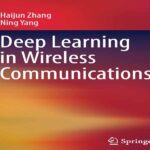

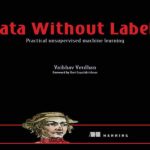

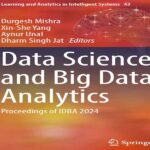
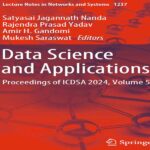
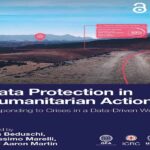

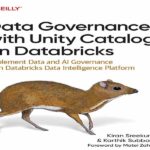
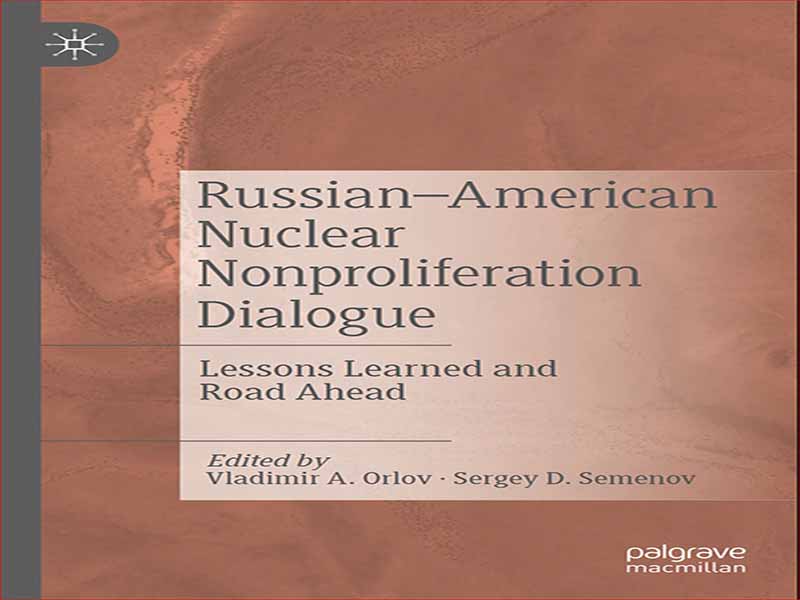























نظرات کاربران